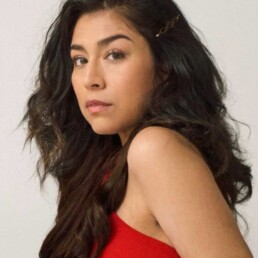An actor, writer, and director of Latina descent, Evelyn Lorena is a filmmaker who seeks to explore the largest questions of life through her art. Identity, heritage, and even God are just a few topics that the up-and-coming star explores in her new short film and directorial debut, Gabriela.
In our exclusive interview, Evelyn talks about writing and starring in her directorial debut as an indie filmmaker, as well as portraying Latino representation onscreen in an empowering light, and the underlying forces that connect us all: “I really love the idea of fully exploring the meaning of love — and I don’t just mean the proverbial getting together with someone, but what love really means beyond ourselves.”
It’s such a pleasure to meet you, Evelyn! I’d love to learn about the origin of your new film, Gabriela. When did you conceive of this story?
Thank you, such a pleasure to be interviewed. I truly appreciate Cinemacy and I love the filmmakers you’ve been able to feature!
I feel as if Gabriela has two origin stories. I originally wanted to see a very real-feeling film about the Latino/US immigrant experience, but with a focus on their inner life. I found the stories told about Latinos – if any – had the burden of portraying the experience of how they entered the United States. The struggle of the journey over the border — and while that is a very real part of many of those in the Latino immigrant experience, I felt the experiences of Latinos were far more vast than that, particularly when it came to the vitality and spirit within our community.
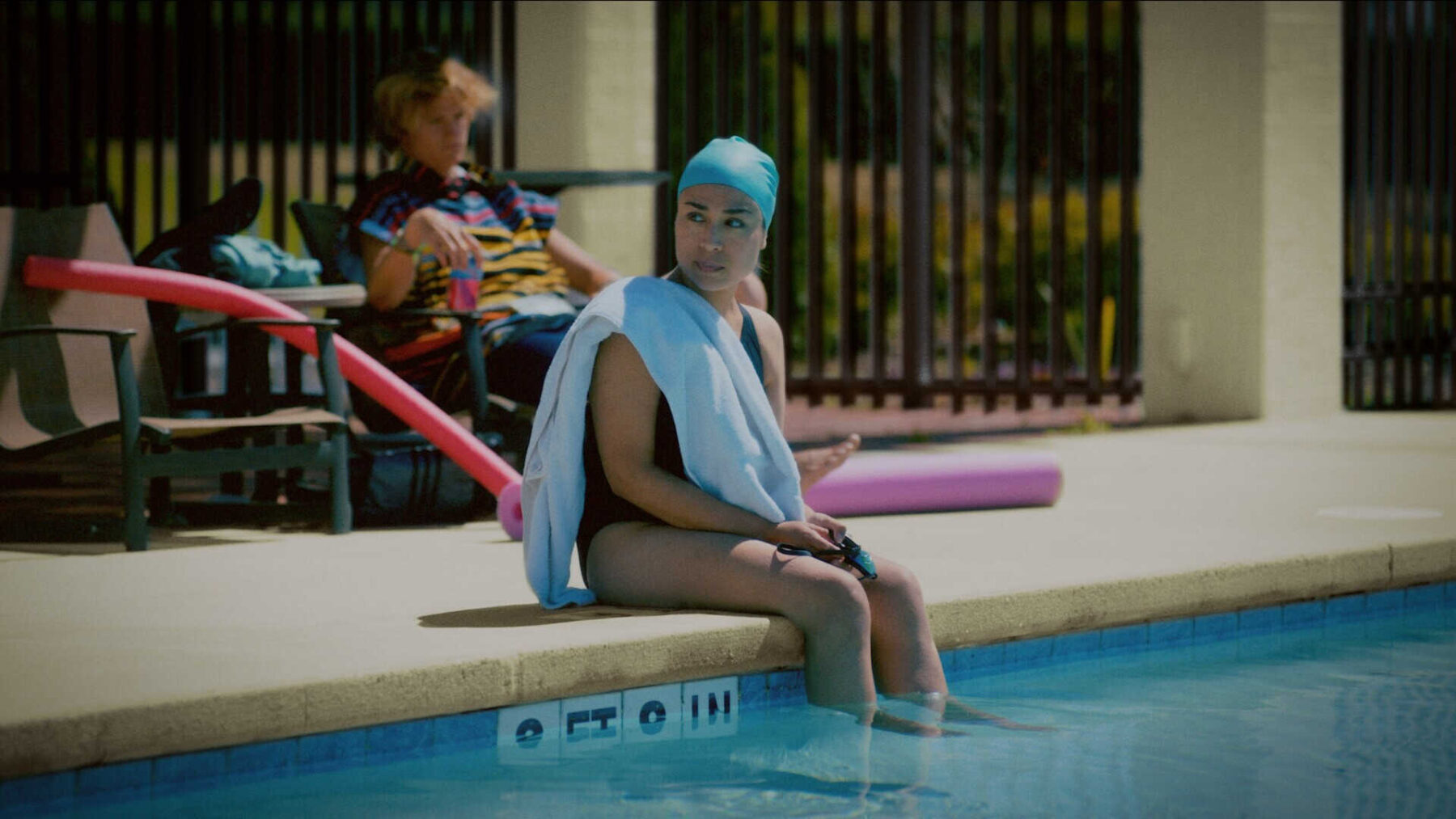
I was confused why I wasn’t seeing the more human aspects explored, the way some of my other favorite films explored their characters. I thought pushing that expectation and conventional narrative and bringing it on a journey to another place would be interesting. And the second origin came a little bit later once I began encountering some very dire health issues. At the time, I constantly contemplated the true meaning of freedom: who creates it and how we create it for ourselves, especially in systemically constricting environments. I really wanted the lead character to embody the nuance and complications that come from an experience like this. It isn’t just about the hardship, but when there is hardship, there can be a lot more beneath the surface of our perceptions, and there can be a lot of cultural and personal richness that can be overlooked because of those preconceived notions we have of others.
And it was important for me, as it is to our community, that despite appearances we find ways as humans to value ourselves and reconnect to those things. Things we are encouraged to forget or erase, like our heritage or inner lives, in order to assimilate or “fit in.” I suppose I’ve found that looking for that exterior validation can be the most toxic of things, and actually reclaiming something for yourself and cultivating self-acceptance and self-validation creates more of the personal freedom we’re all looking for.
What was your screenwriting process like for this film? Do you have a routine or specific method of writing that works best for you?
Hmm… I feel the routine of creating something for me goes to crafting creative spontaneity versus having a particular structure each time. I come at writing the same way I come at acting I think — because it’s the only way I know how to craft a character or story. I don’t see it that much differently, but that could be because I just see it through a performing lens. That’s how I have moved through this industry primarily, as an actor. I feel a lot of the process is intuitive if that makes sense.
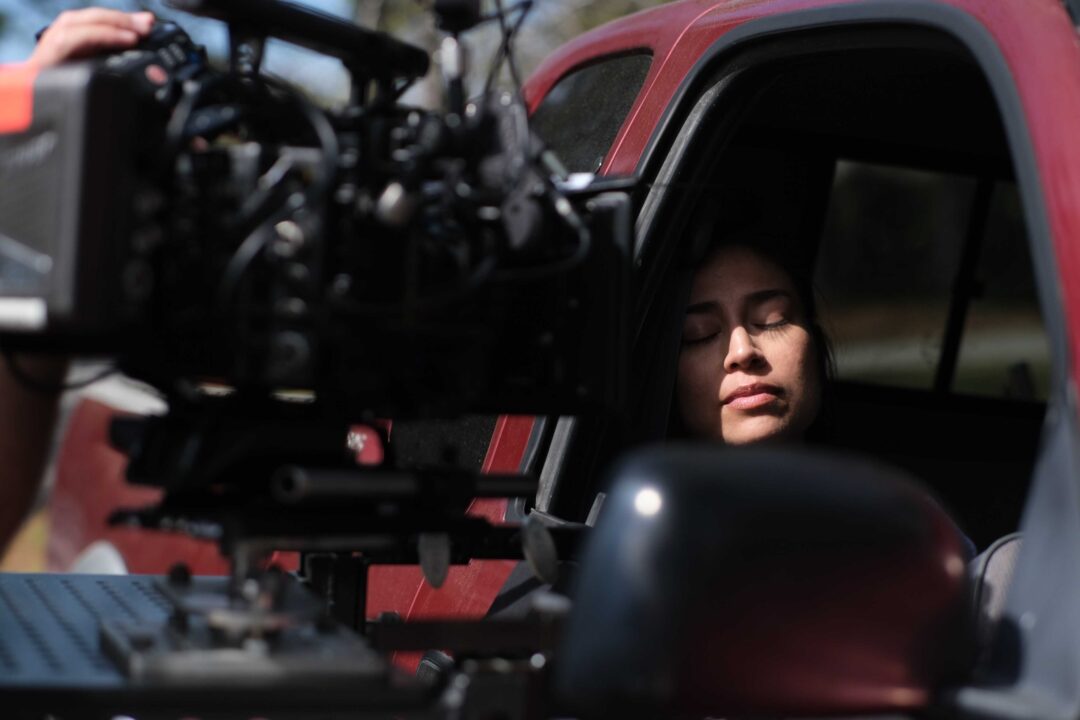
(I’m weary to describe it at the risk of sounding pretentious like a faux spiritual guru or something, haha. I swear my efforts are genuine!) But, I guess for me the first step is to feel something and really try to understand a story without judgment — like truly looking at it as if it were myself in that position as if the experience were coming out of me. And, not the person that you and everyone else knows, because it’s not you, and it shouldn’t be “you,” but more as if that particular point-of-view is now yours. … then you get reminded there is no real “you” anyway … SEE? It sounds really crazy, but I also guess that’s empathy.
They have to be real people on the page first: the people you see walking around really believe the points of view they carry. I’m not entirely sure how I or anyone else achieves anything creatively. It’s a strange sort of intuitive magical exercise, and again, I hate saying that because then it feels precious or elitist — and it’s not! Art is for everyone. It’s just that you’re praying it works out or the stars align. I think the process can only be understood through the experience of it.
What ideas, themes, and messages did you want to ensure came through in telling this story on screen?
I really loved the idea of water as this force with many layers. Almost as if the thread of “God” is in the water. Whatever that means to someone. I feel like God has been traditionally portrayed as this force, or rather a man, in the sky looking over us — away and separate from us. But I feel like that’s a very limited idea. It can be the father figure, but it can also be many things too. Maybe another idea of God can be just the thing that holds us together. Or even inner guidance.
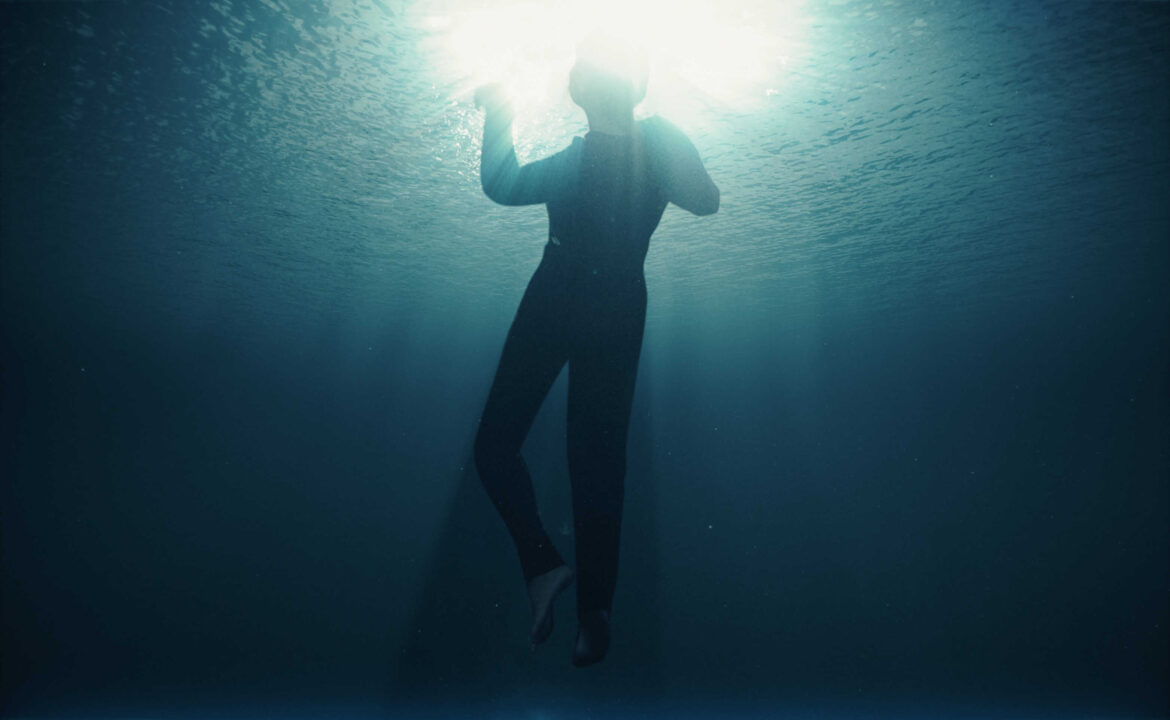
There’s this new concept in quantum physics that talks about an invisible layer that holds realities together and it really reminded me of what I’m talking about. I’m not trying to throw any kind of blaspheme here, just trying to expand on these conventional and at times controversial ideas. I really don’t think we have to believe something in a certain way, but I think that in the film, the water acts more as a thread for Gabriela to reconnect to those etheric forces we hold in our life: things like identity, heritage, her inner nature, or even God itself. All of that is very personal and becomes a very personal understanding of those concepts and I wanted that inspiration or reconnection to begin with the water.
Gabriela is such a personal story, about a young undocumented Guatemalan woman pursuing her dream of swimming in a country club swim team. Was it difficult for you to write and confront these issues of marginalization, economic status, and self-acceptance?
Marginalization is such an interesting concept to me. I’ve found when you speak to people within immigrant communities, there’s not a lot of room or time for self-pity or victimhood. Generally (or in the case of my family) they’re focused on survival and moving forward. They’re humble, motivated, resourceful … and I think that’s instilled throughout the generations. They’re not perfect, but they are human. Vastly human. So, it’s always interesting to me to hear “marginalized” because it’s really only how someone else is socially conceiving the community as “other” or less-than, but that couldn’t be further from the truth.
I’m certainly not trying to preach, but there is so much cultural richness and capacity there. They aren’t marginalized in spirit. It’s more how society has deemed them, sometimes out of convenience, social power dynamics, or in many cases the actual law. I think that’s where part of the marginalization comes from — perception (among other things) — which to me again is sad because there is so much humanity present within the Latino & Indigenous communities.
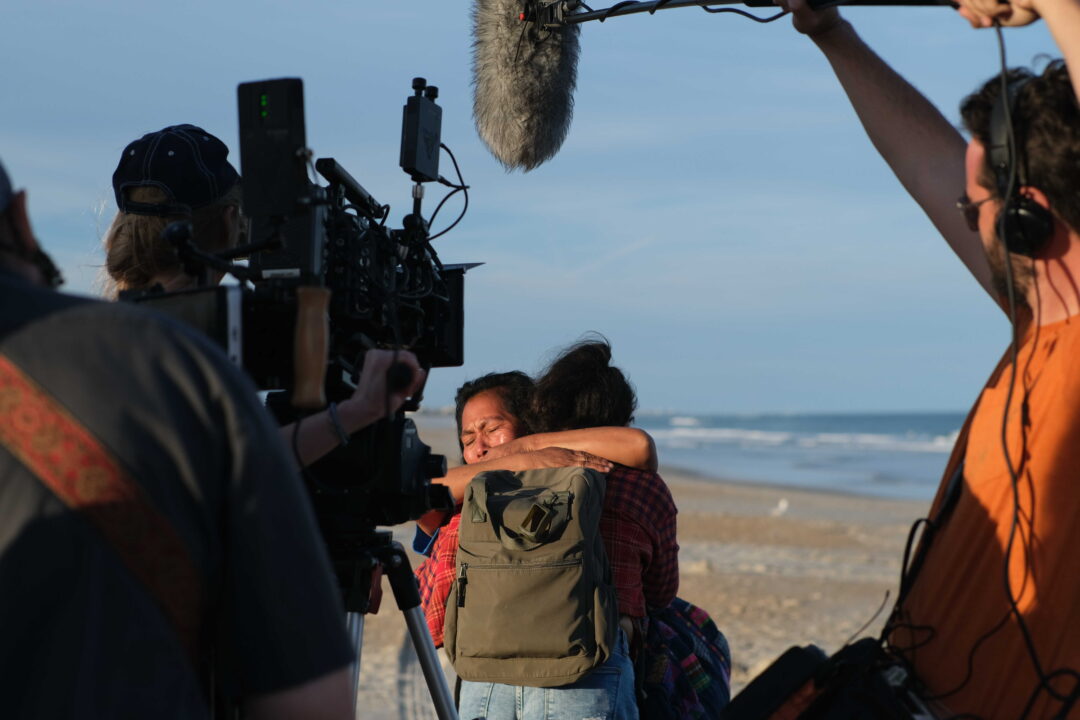
I think that’s one of the sources of frustration for Gabriela in the film. She can’t see why there are barriers to her existence because she is just as human as anyone else. The journey is not literally about the swimming, or say, her being entitled to anything. It’s about her essentially asking for access to opportunity, to be seen as a human in all aspects of her life – even to herself. The trouble is being forced to feel less than when you aren’t. It’s a deep invalidation. I’m sure we can all relate to that.
But, I think that is what made confronting these topics and writing the story an exciting process, even if the nuance involved felt difficult to accomplish. Empowering someone who perhaps traditionally, especially in media, has been portrayed as second-class, or with throw-away humanity, and creating a story that shows otherwise. Empowering Gabriela within the story for herself and her heritage was important and very personal to me because it mirrors my own journey. I hope it can mirror the journey of others and stir something within the audiences that see the film in that same way.
Along with writing and directing the film, you also star in it. When did you start acting, what do you like about performing that differs from writing and directing, and what was it like to direct yourself?
My first play was in 5th grade as Dorothy in The Wizard of Oz. Haha. But after that, I was encouraged to focus on my studies and it was a bit of a painful road to convincing my parents this was a viable thing until it wasn’t. Eventually, they understood — I think. Sometimes parents need a little reassurance because they want the best for you and don’t want to see you fail or struggle.
I love performing because you really get to express something so viscerally. It’s why I started writing because that desire to express another point of view or experience is so strong. I really love the idea of knowing what it’s like to be you. It’s interesting to me because I don’t really believe we’re all that different. It’s just identity, the packaging, that’s different sometimes.
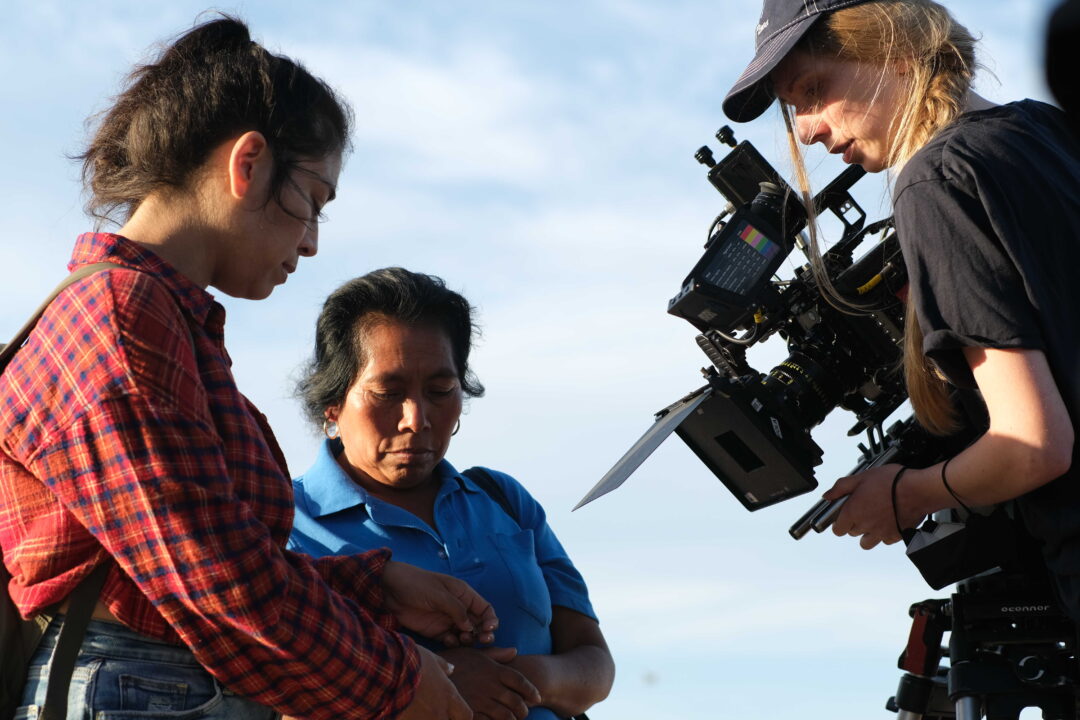
I feel really connected to others and I suppose that’s what led me to direct as well: to connect to other people and also because I had such a specific idea of how I wanted the story of Gabriela to be told. It didn’t feel too odd to direct myself, because I think on some level actors have to learn to self-direct whether it be in auditions or otherwise. You end up having a grasp of directing, so it was about translating that process to set.
That is absolutely not to say that directing is easy, or a throw-away, or that anyone can do it. I have so much admiration for directors that it still feels difficult to call myself that because I’ve seen the work it takes to make a great film, and of those I admire, it still feels like a mystery to me.
What was the rehearsal process like, as well as shooting? Did you discover anything new about the story, your character, or yourself while working with your actors?
The right actor can really understand your words. I felt so fortunate I found the people and the actors I got to work with. I had a really specific idea about the dynamic of the relationships — and of course, you don’t want that to close yourself to other ideas, but I was floored at how Maria and Viktor were able to express that so specifically and seamlessly. It was so wild, especially since I hadn’t worked with them before. Production can carry so many variables and technical difficulties on its own, so having them understand their characters so well was just beautiful. I’m really grateful to them for their talent.
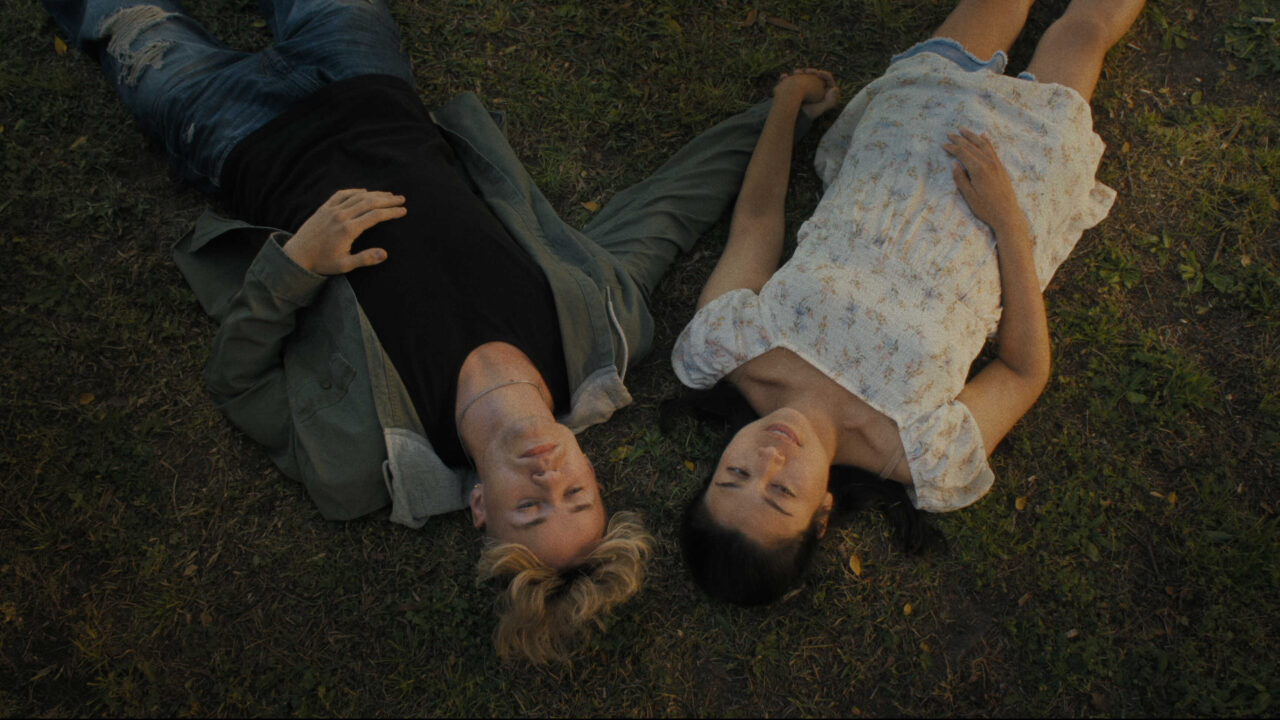
What obstacles did you face throughout making the project? What was the hardest challenge to overcome, and what was your most unexpected breakthrough?
Creating the water sequences. Not only because it was a limited budget, but the specificity of the water had to be shot in a way we could control it, so we opted for the dry-for-wet setup. I absolutely love what our resourcefulness came up with. I have to thank the stunt coordinators Brett Copes and Constance Palmer, alongside the Grip & Lighting Team of Ben Davis & Bean Brambell, and production designer Emily Marquet, as well as the former Screen Gem Studios. Without them, it really wouldn’t have been possible.
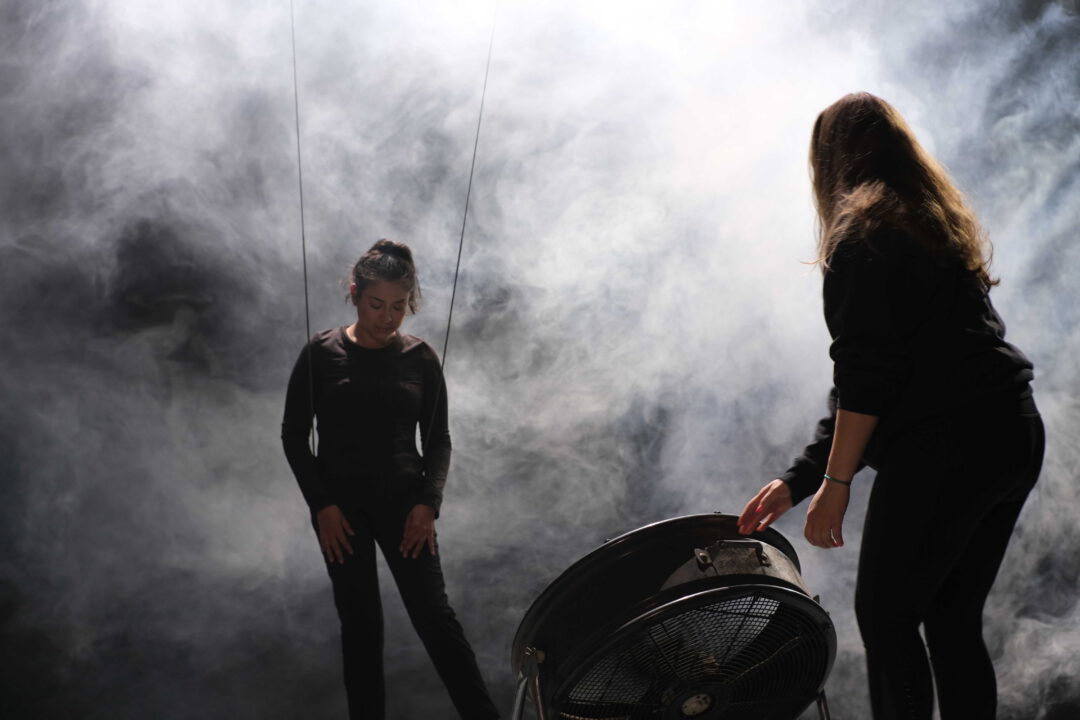
I guess the second biggest challenge was also being mindful of my health while shooting and shooting the water sequences because I was undergoing some medical treatments alongside filming. That was a novel challenge.
Is there any scene in particular that you are most proud of, or think back on fondly?
I love the ending beach moment. It really captured for me this idea of generational reconciliation not just for Gabriela but for her family, her people — and trying to express that through a simple and singular image of them standing together. I have to give additional credit to my director of photography Xenia Patricia. She was crucial in that with me.
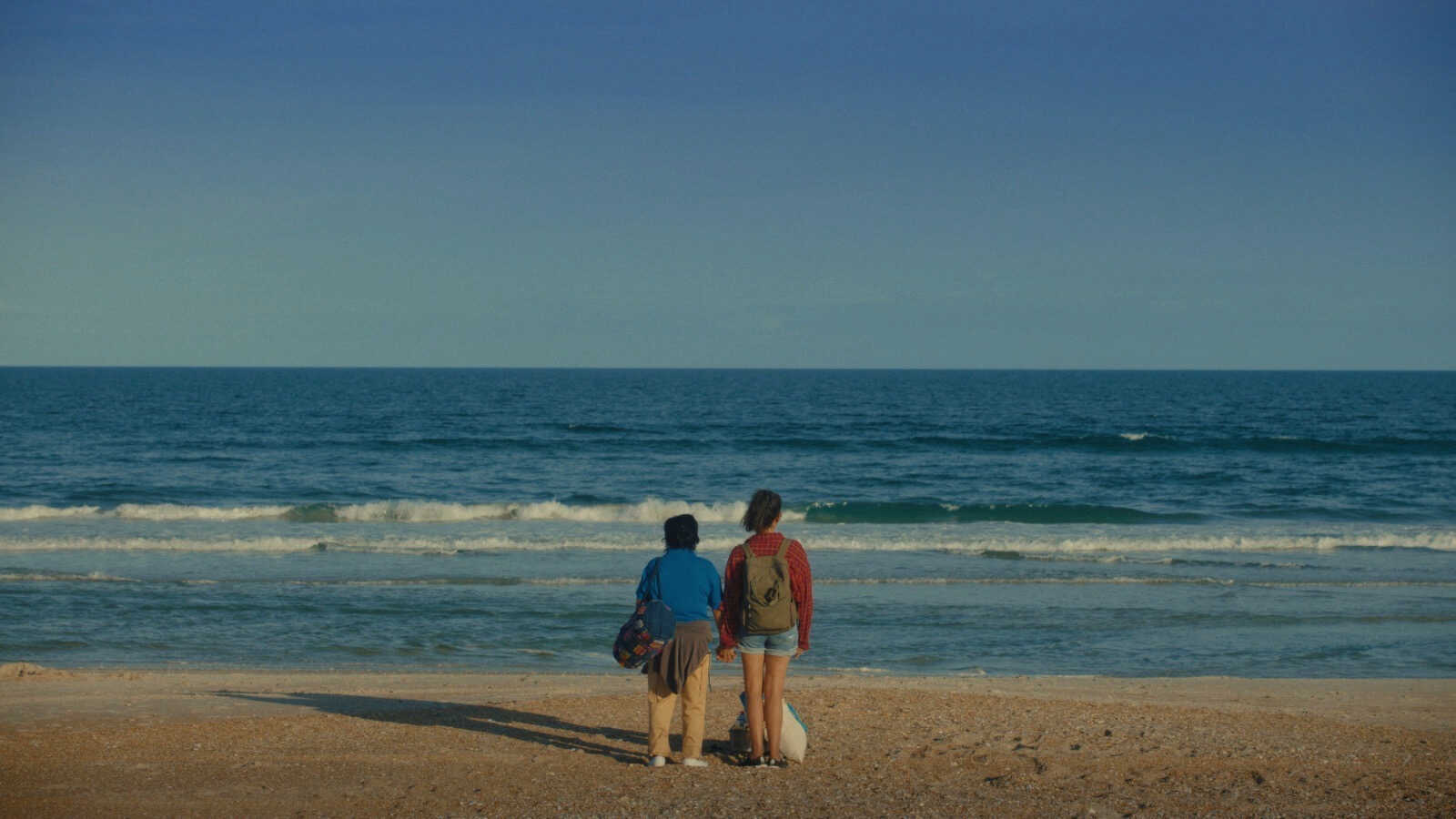
What was it like to win the Netflix and Latino Film Institute’s Indigenous Latino Fellowship?
Oh, it was so beautiful and a welcome surprise. I wasn’t sure what my next move in the industry was. In fact I was contemplating leaving because so many personal things were happening that I needed to take care of and I was just going to overwhelm myself continuing, but then this was almost like a divine intervention.
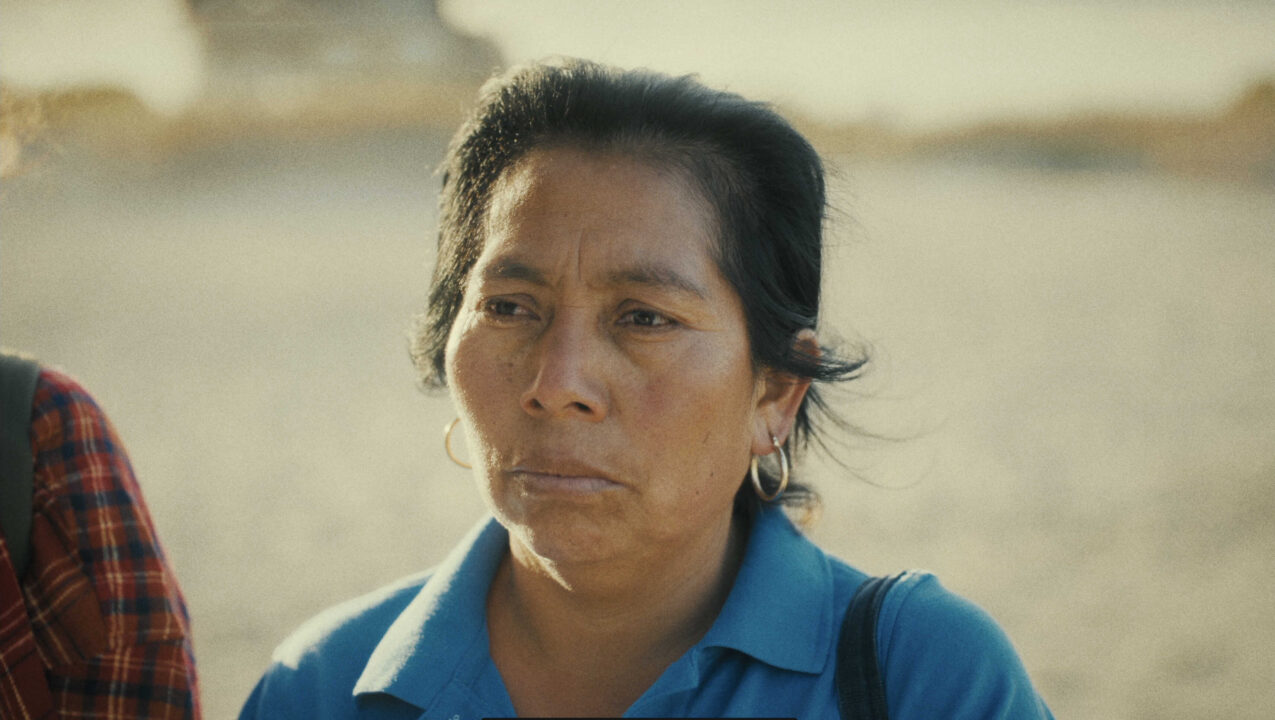
I am really grateful to the Latino Film Institute and Pete Corona, the fellows, and all the mentors who championed our films. My relationship with my fellow filmmakers feels like a family and the guidance I received made this film what it is.
What takeaway do you hope audiences will have after watching your film?
I really want them to take whatever they want from it. It feels almost like it’s no longer my film! I can’t and wouldn’t want to dictate what should be taken from it. But, I suppose if I had to narrow it down, crafting more empathy and understanding of another person. We’re all human and I find it strange that we can look at other humans differently than the grace (or lack of grace) we give ourselves.
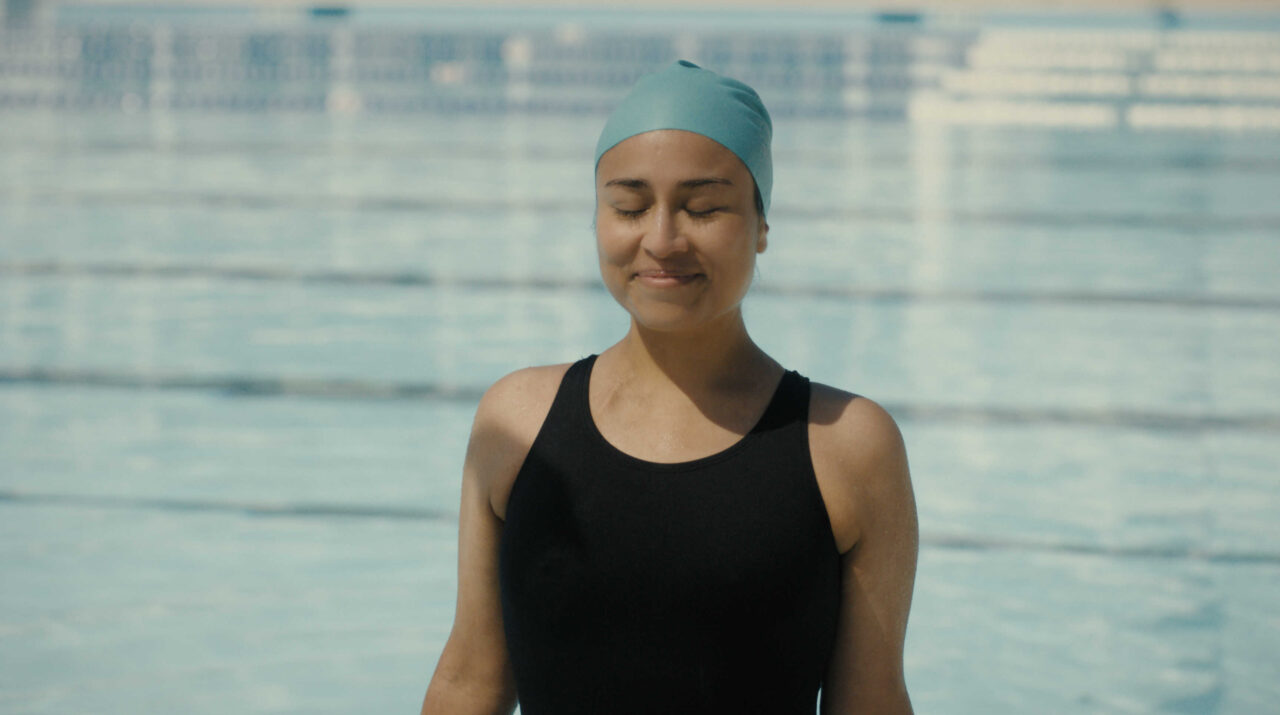
Let’s get to know you better. Where are you from, and where do you reside?
I’m originally from Wilmington, NC where Gabriela takes place. I go between LA and Atlanta now since the industry moved everything down there. I really enjoy being able to travel, it’s one of my loves in this industry. The people and places you get to know.
What are your favorite films, who are your filmmaking idols, and dream collaborators?
Lars Von Trier, Sophia Coppola, Paul Thomas Anderson … Gosh, there are so many, to be honest. I value and love cinema so much, it doesn’t necessarily have to be someone seasoned. Right now my favorite film is Phantom Thread. So I suppose it would be lovely to have tea with Paul Thomas Anderson. (But I feel like that’s everyone’s answer.)
What is one thing you’ve learned as a filmmaker that other filmmakers would benefit from knowing in starting their careers?
Gabriela is my directorial debut, but my advice would be to watch great films over and over. No matter the genre. I was watching Jurassic Park the other day, and action isn’t usually my first aesthetic, but the film is just so well done. It’s beyond an action film. Down to every detail. I really admire being able to be that focused on detail and also still achieve the bigger picture. It’s really masterful.
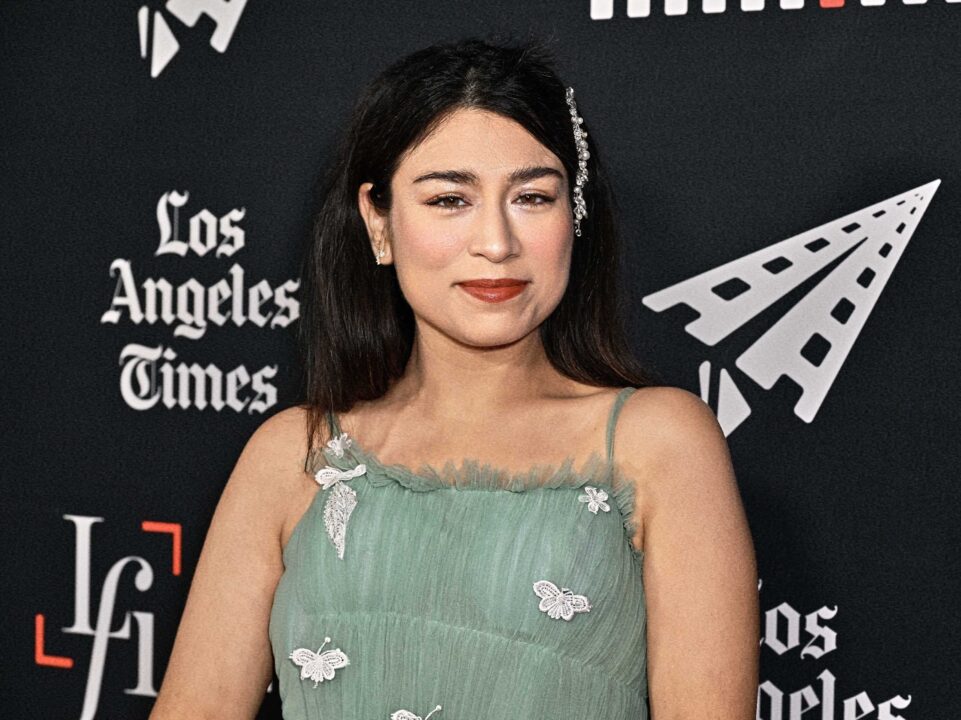
I cry when they’re leaving the island, and leaving behind the majesty of the whole thing — and you’d think I’d hate the island experience because it’s done so much damage, but you also see the conflict of leaving behind this epic beautiful thing the park tried to achieve. It’s so good! I’ve seen it so many times.
What is the future of this film? Do you have any future creative projects?
I am working on a couple of things at the moment — I don’t like speaking too much on something before they’re finished, but I am really moved by the subject matter in and the capacity for nuance in them. I hope others will be as well. Gabriela is screening at more festivals over the summer and you can follow the film page (@gabriela_film) for more updates. We have a screening I also can’t announce yet coming up in August that I am absolutely thrilled about.
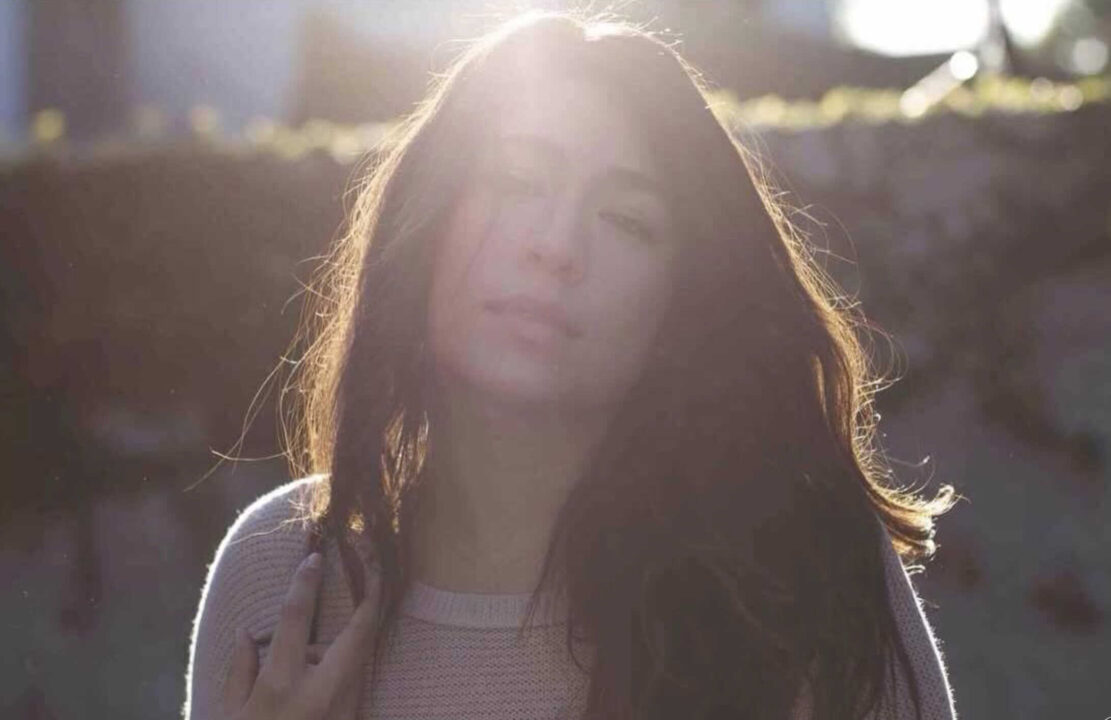
What is one message that you would like to share with audiences about your work, your general outlook on life, that you are interested in further showcasing in your films?
I really love the idea of fully exploring the meaning of love — and I don’t just mean the proverbial getting together with someone, but what love really means beyond ourselves. Spiritually, existentially, through our communities, or even in the moments we place strong boundaries because of love. It’s what creates empathy too. It’s everywhere. It’s the fabric and the thread throughout our existence … I may have just understood another layer to Phantom Thread! (You’ll have to see it.)

